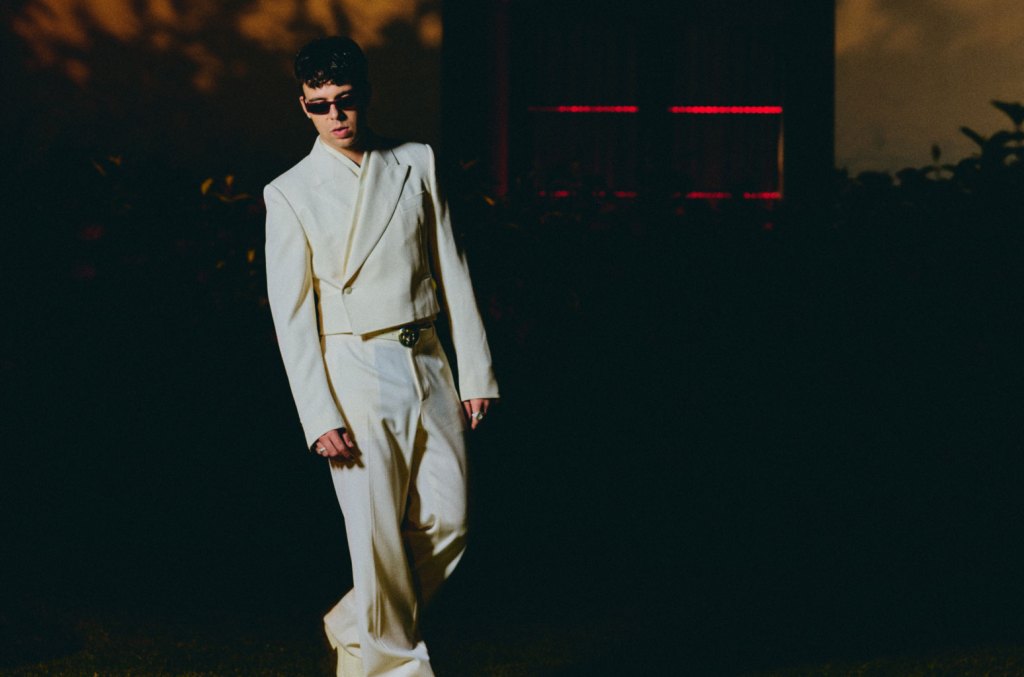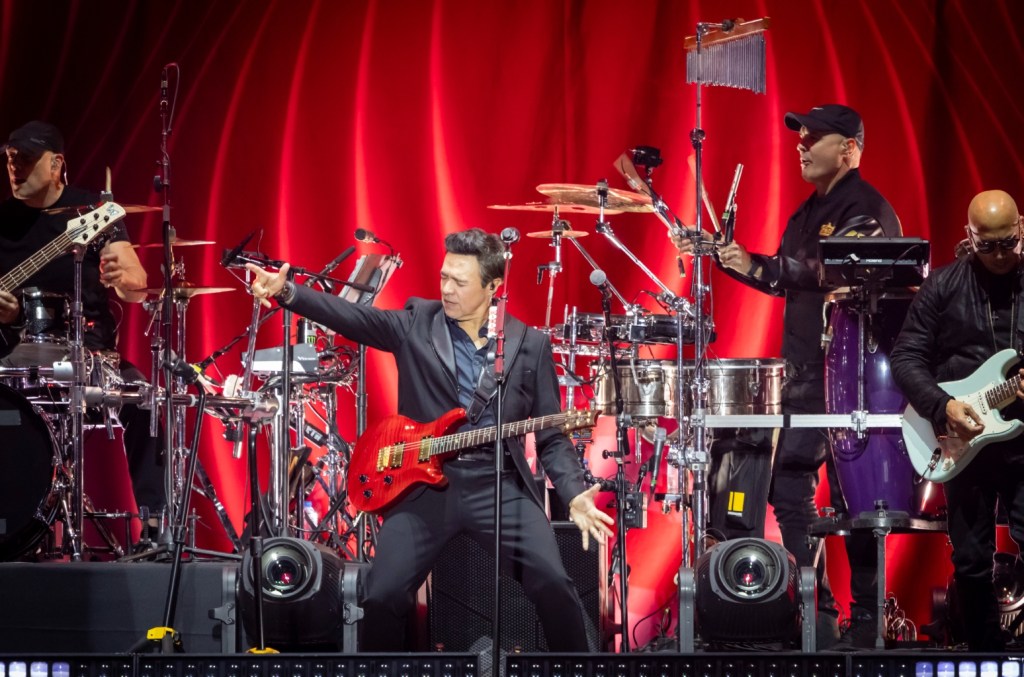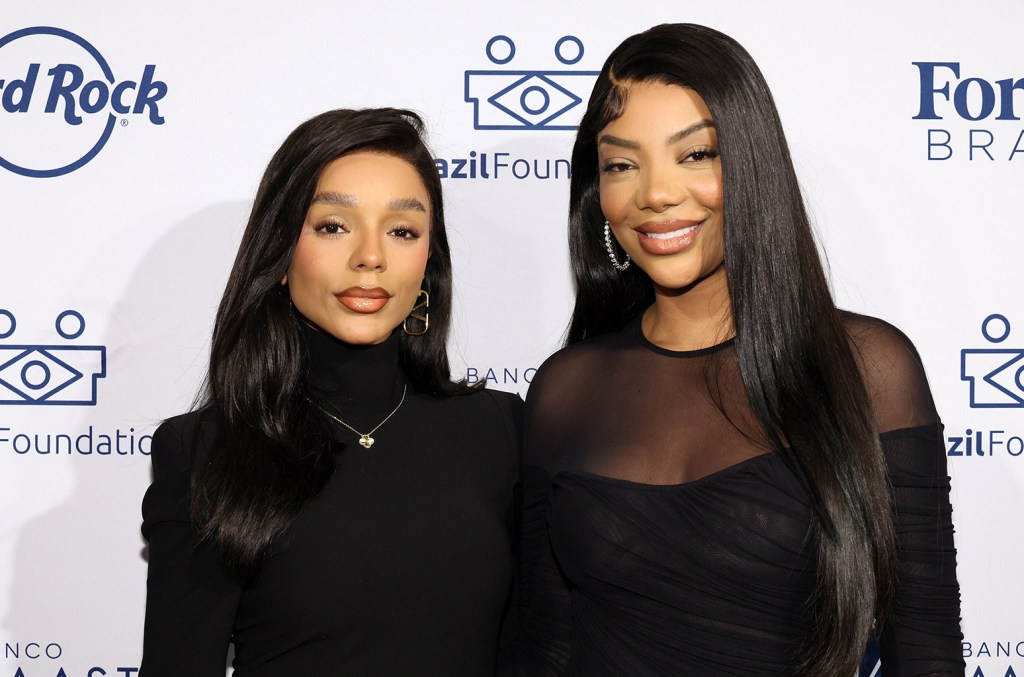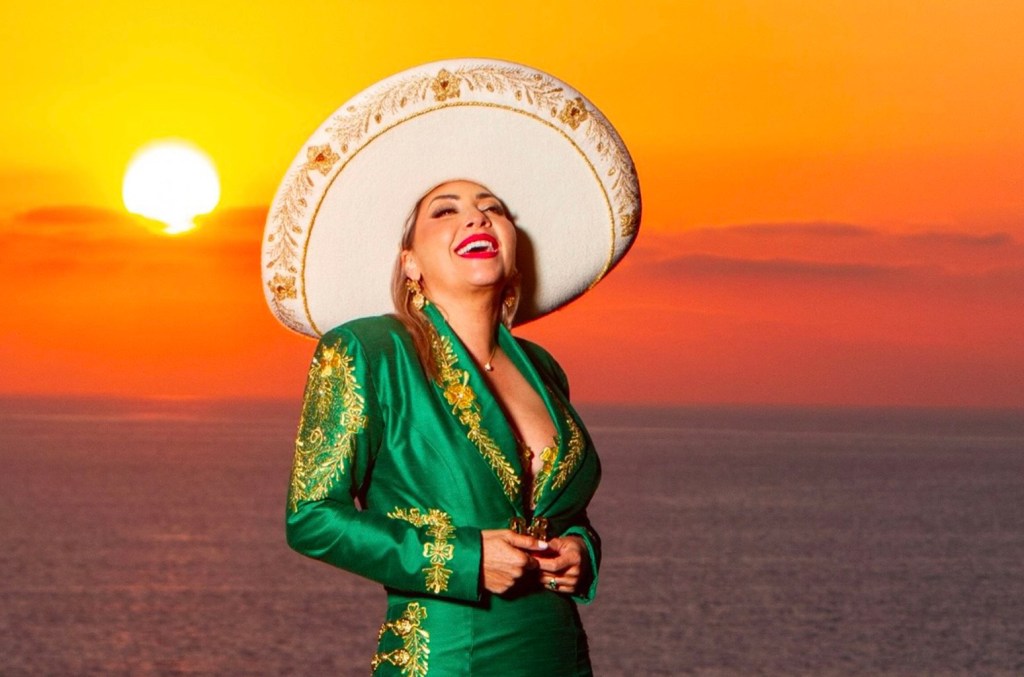At the beginning of 2023, Quevedo announced a stop in his career. Six months earlier, the Spanish artist had topped the Global 200 chart with “Bzrp Music Sessions, Vol. 52” alongside Bizarrap, making him and Bizarrap the first artists from Spain and Argentina, respectively, to reach No. 1 on the listing.
By then, Bizarrap was already known for his provocative Music Sessions, but outside of Spain, Quevedo was relatively unknown — even though a few months earlier he had reached No. 145 on the same chart with “Cayo La Noche,” a collaboration with El Ima, Cruz Cafuné, Bejo, La Pantera, Juseph, and Abhir Hathi.
However, “Vol. 52” was his big ticket to a global audience that immediately connected with his deep voice and catchy mix of dance, pop and urban music. In a matter of months, Quevedo became a star — and in January 2023, he released his first album, Donde Quiero Estar, which debuted at No. 9 on the Billboard Latin Rhythm Albums chart.
Although everything looked rosy, privately, Quevedo, who had just turned 21, felt tired and overwhelmed by the media, tours, pressure, and releases.
“From when I started to when we made ‘Cayo la Noche’ and the session with Bizarrap, I really didn’t have a chance to stop and decide: Do I like what I’m doing?” he says today. So he stopped.
For a year, he didn’t release music or give interviews. Until now.
On November 21, Quevedo returned with his second album, Buenas Noches, distributed through Rimas Entertainment, the home of his idol Bad Bunny. The 18-track set is a mix of pop and urban, with collaborations including Sech and De LaGhetto, but also surprises like Aitana and Pitbull, on a journey that ranges from totally fun to more introspective.
Not everything is as it seems. Much of the album’s aesthetic is based on red carpets and paparazzi, and the cover shows a smiling Quevedo with dark glasses talking to the cameras. But the photo is inspired by one of Michael Jordan, finally smiling when he decided to return to basketball after his father’s death. Now, after a year, Quevedo too is ready to return. Here is the story, which he tells to Billboard below.
Tell me about Buenas Noches.
It’s an eclectic album. Since I had not released music for a long time, what I most wanted was to flow in the studio and do things that I felt like doing. Make a fun album above all, not so introspective. There are songs that are more personal, but the majority are for people to have fun with. I made the album in very different stages. I released my first album in January 2023, but just before, when I had finished it in 2022, I started making this album. I made the first tracks in 2022. Then last year I did many camps, and this year I really got into the studio. But it has taken me over two years to make the album.
So, you really didn’t take a break from music?
For me, the break is not about not going to the studio. I love going to the studio. For me, it was about not being in the public eye. What I didn’t want was media pressure, keep traveling every week. It was about stopping and saying, okay, where do I want to take my career. I wanted was to disappear a bit from public view.
Why?
Everything was so pressed by the next thing that there was a moment when I said, “This was my dream, but it’s been a long time since I’ve considered if I’m happy with what I’m doing.” I started doing music because I love it. I don’t like being famous. It’s a consequence that I’m willing to assume if it means I can make music and live from it. But I don’t like being famous, I don’t like people getting into my life. What I love is that moment of creation.
I needed to stop and focus. Now I feel I have the strength to take everything up again, and I’m willing to deal with the things I don’t like so I can make my music.
Was there something that made you take the break and come back?
In 2022 I wrote “Ahora Qué,” a song that said: “2021 to sow, 2022 to reap, 2023 to crown, 2024 to disappear.” When I wrote that, I thought I’d take things a bit more slowly. But over time, in 2023, with the tour, the writing camps, there was a moment when I was making music only in camps, but not in my day-to-day. And at the same time, I moved to Madrid and was far from my family and my friends and my partner and there was a moment when I felt quite alone. There wasn’t a specific moment, but there was a moment of, “Damn, maybe I should take that song seriously.” At no point did I consider not coming back. What I specifically wanted was a moment to take for myself.
Can you describe the album?
It’s a very eclectic album, but there’s a sound with a lot of synths, drums, very 2008-2011 —Jason Derulo, Timbaland — strange mixes with new sounds and I think that’s the sound that repeats the most. The album is quite lively lyrically.
I hear many songs with many stories. The focus track, “Kassandra,” talks about a night with a celebrity who is always accompanied but ultimately is alone; “Iguales” is about a womanizing guy who sleeps with as many as he can, for example. Do all the songs have that element of storytelling?
Almost all. Ideas always flow more when I write [about] specific situations. There are many stories that I haven’t lived through 100%, but they’re inspired on things my friends tell me. That’s where my songs come from. I try to imagine situations.
You have a song with Pitbull, “Mr. Moondial.” How did it happen?
We always said, “Let’s do something very pop… very Pitbull.” We made the track, I recorded my bit, we called the song “Mr. Worldwide.” And we always said, we have to get Pitbull. But we didn’t know him. I don’t know him to this day, because he recorded two and a half weeks ago! But I’m sure we’ll meet him.
It’s an album with a beginning and an end and a context, at a time when many albums are simply collections of singles. What recent album inspires you?
In the current era, from the last eight years, I would say Motomami by Rosalía, for the way she created a new concept after El Mal Querer and all the imagery that album had. And then at a more urban reggaetón level, [Bad Bunny’s] YHLQMDLG is the album that changed the entire industry for me. Obviously, Latin music was already very popular, but that album confirmed Latin music ruled. It made people try to do things better. When I heard it, I said, “That’s it: From now on people are going to start making real albums.”
Watch the “Kassandra” video here.





